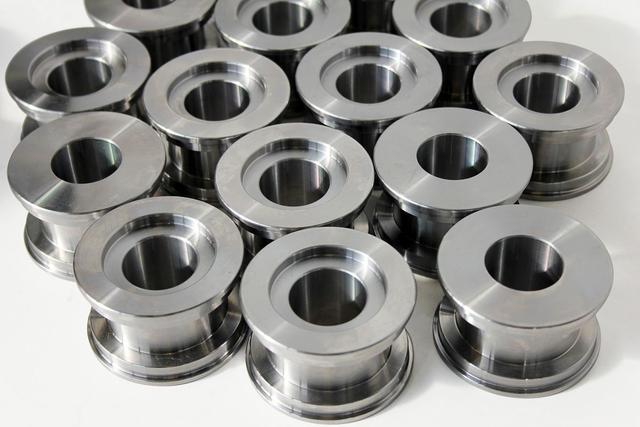Exceptional Dimensional Stability Solutions
Leverage our advanced manufacturing capabilities for precision-engineered Invar components. From aerospace applications to scientific instruments, we deliver exceptional quality with industry-leading thermal stability.

Select from our comprehensive range of Invar alloys, each optimized for specific applications requiring exceptional dimensional stability.
Classic Invar 36 with ultra-low thermal expansion coefficient
Ultra-low thermal expansion coefficient (1.2×10⁻⁶/°C)
Lower nickel content with good thermal stability
State-of-the-art manufacturing processes for precision Invar components
100% of scrap material recycled
Solar-powered facilities
Closed-loop cooling system
Zero landfill initiative
Invar is expensive due to its high nickel content (36-48%), which is a costly alloying element. Additionally, the specialized manufacturing processes required to achieve ultra-low thermal expansion coefficients, along with the need for precise composition control and quality assurance testing, contribute to the higher cost compared to standard steels.
Invar typically costs 3-5 times more than standard stainless steel, with prices ranging from $15-30 per pound depending on the specific grade and form. Super Invar can cost 5-8 times more due to its cobalt content and more stringent manufacturing requirements. The exact cost depends on quantity, specifications, and current market conditions.
Invar can be challenging to machine due to its work-hardening characteristics and tendency to generate heat during cutting. However, with proper tool selection, cutting parameters, and coolant application, it can be machined successfully. We use specialized cutting tools and optimized machining strategies to achieve excellent surface finishes and dimensional accuracy.
Standard Invar 36 has a thermal expansion coefficient of about 1.2×10⁻⁶/°C, while Super Invar has an ultra-low coefficient of approximately 0.3×10⁻⁶/°C. Super Invar contains cobalt (5%) in addition to nickel (32%) and iron (63%), making it more expensive but providing superior dimensional stability for the most critical applications like space telescopes and ultra-precision optics.
Invar's main disadvantages include high cost due to nickel content, work-hardening during machining, lower strength compared to some steels, and sensitivity to magnetic fields. It also requires careful handling to avoid work-hardening and may need stress-relieving treatments after machining to maintain dimensional stability.

Lightweight, high-strength aluminum components with superior corrosion resistance

Excellent electrical conductivity and decorative brass components

High thermal and electrical conductivity copper components

Corrosion-resistant, high-strength stainless steel components

High-performance alloy steel components for demanding applications

Cost-effective and versatile mild steel components

Lightweight, high-strength titanium components for aerospace and medical

High-performance tool steel components optimized for wear resistance and durability
Professional CNC machining and custom parts manufacturing services, meeting your precision machining needs with rapid delivery of high-quality components.
© 2025 Partsproto | All rights reserved.